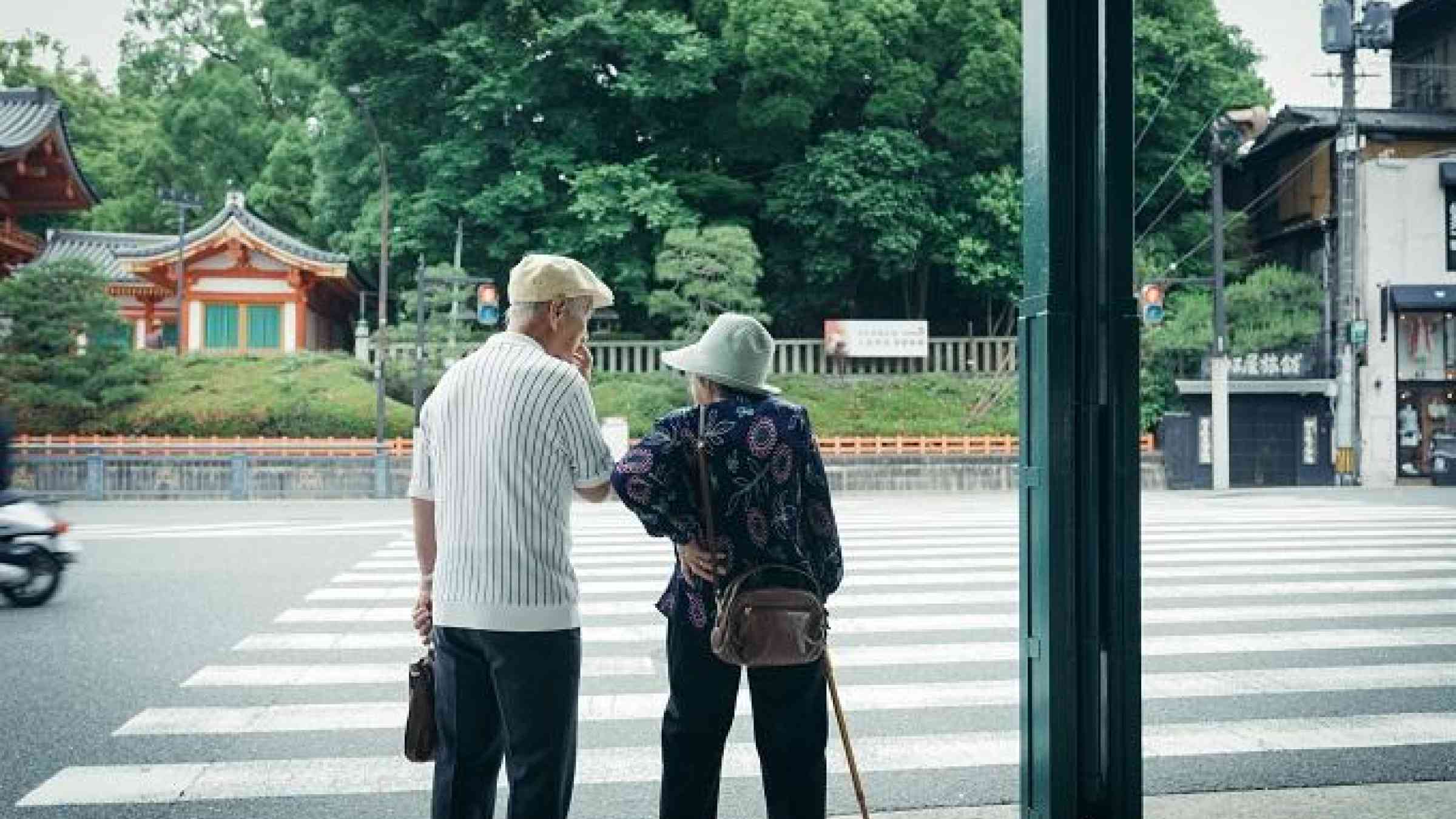Please help us improve PreventionWeb by taking this brief survey. Your input will allow us to better serve the needs of the DRR community.
Social connections boost resilience among elderly after disaster

October 8, 2019 – In 2011, a massive earthquake struck off the coast of eastern Japan in 2011 and triggered devastating tsunami waves. Roughly 16,000 people were killed, more than a million buildings were damaged or destroyed, and hundreds of thousands of people were left homeless.
At the time, social epidemiologist Ichiro Kawachi was in the midst of a national study in Japan aimed at finding the factors that could lead to long-term physical or mental limitations in older age. After the disaster struck, he realized that health information that had already been collected for the study, from 22 locations throughout Japan, laid the groundwork for a natural experiment comparing how elderly people fared both before and after the disaster.
Kawachi, John L. Loeb and Frances Lehman Loeb Professor of Social Epidemiology at Harvard T.H. Chan School of Public Health, spoke about his work at an October 2, 2019 talk at the School titled “Disaster Resilience in an Aging Society: Lessons from the Great East Japan Earthquake and Tsunami.”
Kawachi and his colleagues expected to find that the most prominent long-term health effects among older people after the disaster would be post-traumatic stress disorder (PTSD) or depression. But it was cognitive decline—when a person has trouble remembering, learning new things, concentrating, or making decisions that affect their everyday life.
They also found that the most important factor in disaster resilience was not material resources such as medical supplies, food, or shelter—it was social capital, things such as interpersonal relationships, a shared sense of identity, shared norms and values, trust, cooperation, and reciprocity.
The research focused on how elderly residents of the city of Iwanuma, located about 80 kilometers west of the earthquake’s epicenter, fared both before and after the tsunami. Of the roughly 44,000 people living in Iwanuma before the quake, 180 lost their lives and 6,700 were evacuated to temporary shelters.
Displaced people still living in temporary trailers three years after the disaster struggled with higher levels of depression than those who managed to stay in their homes, the research found. The more damage a person’s house sustained, the more likely that person was to experience dementia symptoms.
The evidence suggests that living in temporary housing, separated from longtime neighbors, can lead to loss of cognitive function, Kawachi said. But people who managed to maintain higher levels of social participation—for example, by meeting with friends or participating in sports clubs or hobby groups—fared better in terms of cognitive abilities than those who were more isolated.
“Dementia is a previously under-recognized health problem in the aftermath of major disaster,” Kawachi said. “And social capital is a resilience resource. It’s something not easily visible that can buffer the impact of the disaster experience on cognitive decline.”
Explore further
Please note: Content is displayed as last posted by a PreventionWeb community member or editor. The views expressed therein are not necessarily those of UNDRR, PreventionWeb, or its sponsors. See our terms of use
Is this page useful?
Yes No Report an issue on this pageThank you. If you have 2 minutes, we would benefit from additional feedback (link opens in a new window).